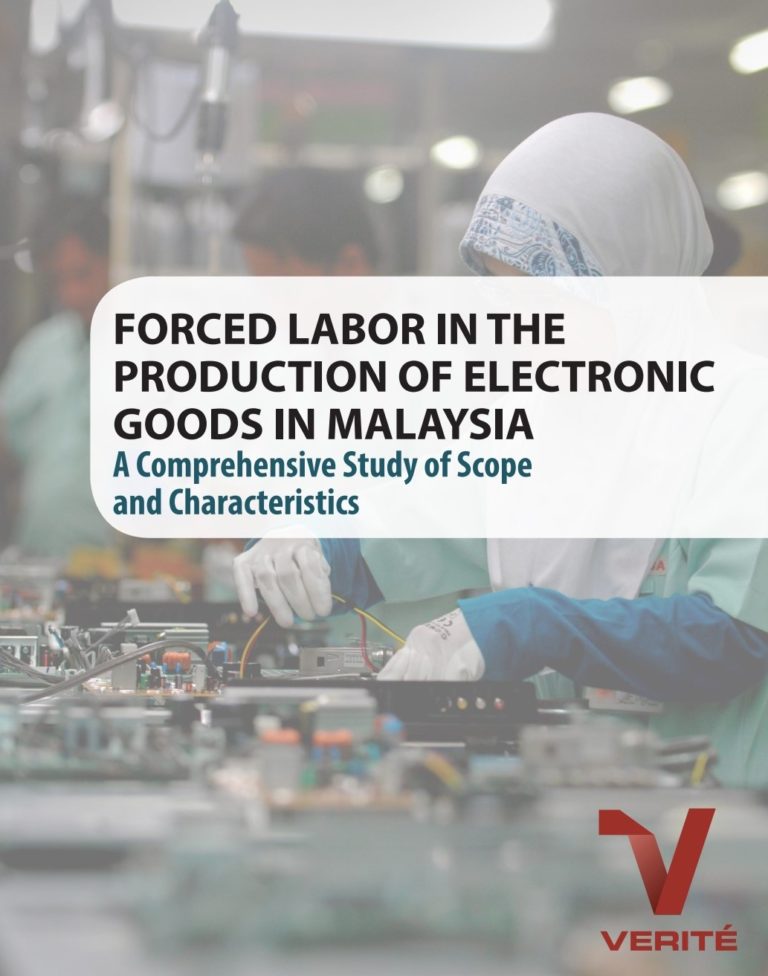Malaysia’s electronics sector workforce includes hundreds of thousands of foreign migrant workers who come to Malaysia on the promise of a good salary and steady work – an opportunity to make a better life for themselves and their families. But many are subject to high recruitment fees, personal debt, complicated recruitment processes, lack of transparency about their eventual working conditions, and inadequate legal protections. Unscrupulous behaviour on the part of employers or third-party employment agents1 can exacerbate vulnerability to exploitation, but the system in which foreign workers are recruited, placed and managed is complex enough to create vulnerability even in the absence of willful intent to exploit. The conditions faced by foreign electronics workers in Malaysia have the potential to result in forced labour. In 2012, Verité received funding from the US Department of Labor to conduct a study to determine whether such forced labour does, in fact, exist in the production of electronic goods in Malaysia.

